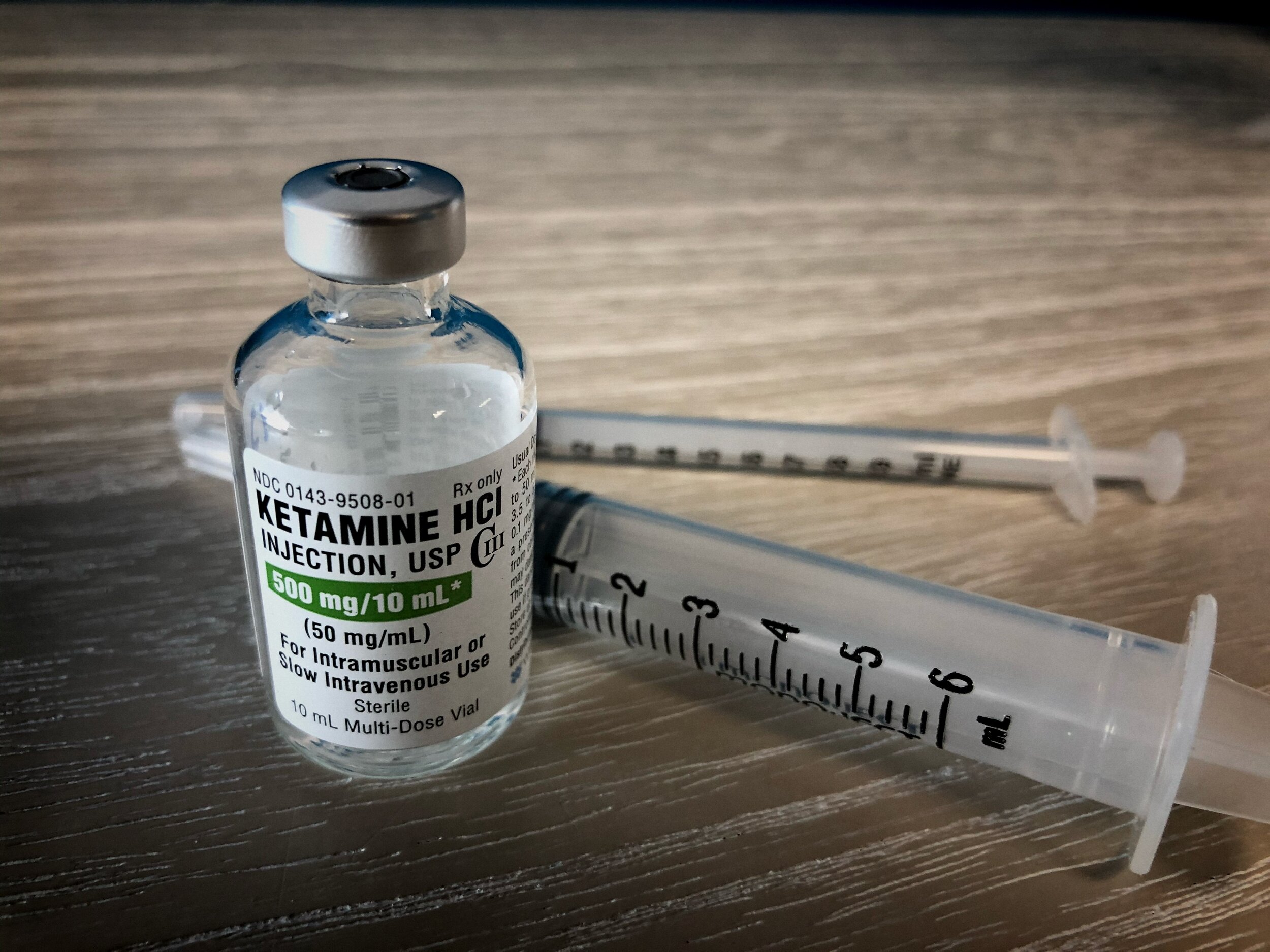Ketamine Infusion Therapy
The most exciting antidepressant you’ve never heard of.
What is Ketamine?
For years intravenous ketamine has been used as an anesthetic prior to surgical procedures and more recently as an alternative to opioid medications to treat pain. In 2013 a derivative of Ketamine was approved by the FDA as a therapy for treatment resistant depression.
Ketamine is a powerful psychoactive drug that has been found to have rapid and robust antidepressant effects in treatment-resistant patients. It works by blocking a receptor in the brain called the NMDA receptor, which is involved in regulating mood and other cognitive processes. This leads to an increase in the release of neurotransmitters such as glutamate and GABA, which in turn leads to changes in brain activity that can improve mood. Additionally, ketamine can also increase the release of brain-derived neurotrophic factor (BDNF), which supports the growth and survival of new neurons in the brain.
How Ketamine works to regulate mood
Ketamine infusion therapy is an option for individuals with severe symptoms who have failed to improve on traditional medications alone. Ketamine can quickly alleviate symptoms and improve mood potentially increasing the efficacy of traditional medications and therapies. The positive effects of ketamine are profound but not permanent and should be utilized as a tool in a more comprehensive mental health plan that our providers will discuss with you.
While you may notice a reduction in your symptoms after just one treatment, in most cases, six sessions over a 2-3 week period with occasional follow-up appointments are needed to achieve optimal results.
What to expect during an infusion?
The initial evaluation by a physician or nurse practitioner takes approximately 30 minutes to one hour. Once you have been medically cleared to receive ketamine, the infusion itself takes 40 minutes to an hour, administered through an IV drip.
You will relax in a comfortable, calm environment and may dissociate or experience a floating feeling or dissociate during your therapy that will subside when treatment ends. You may have a spouse, partner, or friend with you during the treatment. After your infusion is finished, you can rest while any dizziness or other side effects wear off. Your friend or family member will need to drive you home after your treatment and for the rest of the day.
Side effects, if experienced at all, are minimal, and typically consist of either headache, dizziness, or mild nausea, all of which can be treated at the clinic. There are very few conditions that are a contraindication to receiving the ketamine and it is generally tolerated very well.
Now offering Ketamine-Assisted psychotherapy from our friends at Hello Mental Health!
〰️
Now offering Ketamine-Assisted psychotherapy from our friends at Hello Mental Health! 〰️
Ketamine-Assisted Psychotherapy
The rapid effects of ketamine can be optimized by integrating psychotherapy sessions with a licensed therapist trained in ketamine-assisted psychotherapy (KAP). Ketamine offers a fresh perspective and outlook in a relatively short period of time, having psychotherapy sessions between infusions can help guide your recovery. The Anderson Clinic is proud to partner with our friends at Hello Mental Health, a group of local therapist trained in how to help those undergoing ketamine therapy maximize their results. Interested in Ketamine-Assisted psychotherapy?



